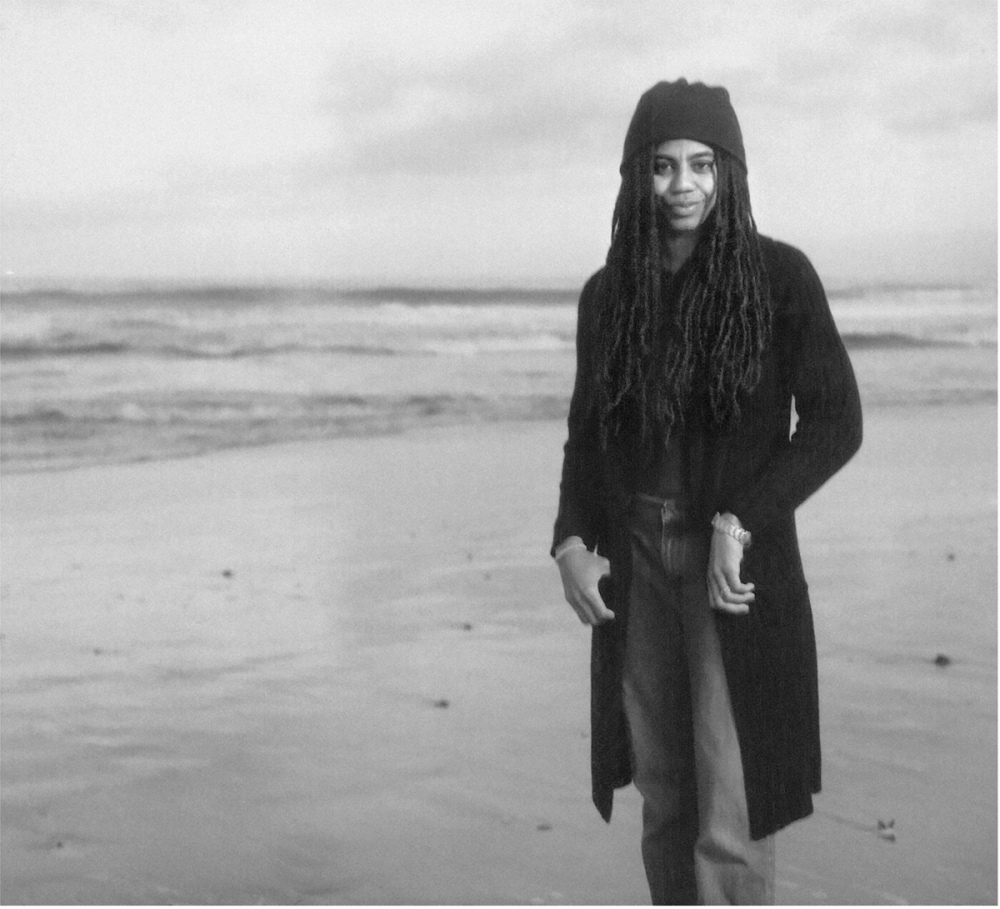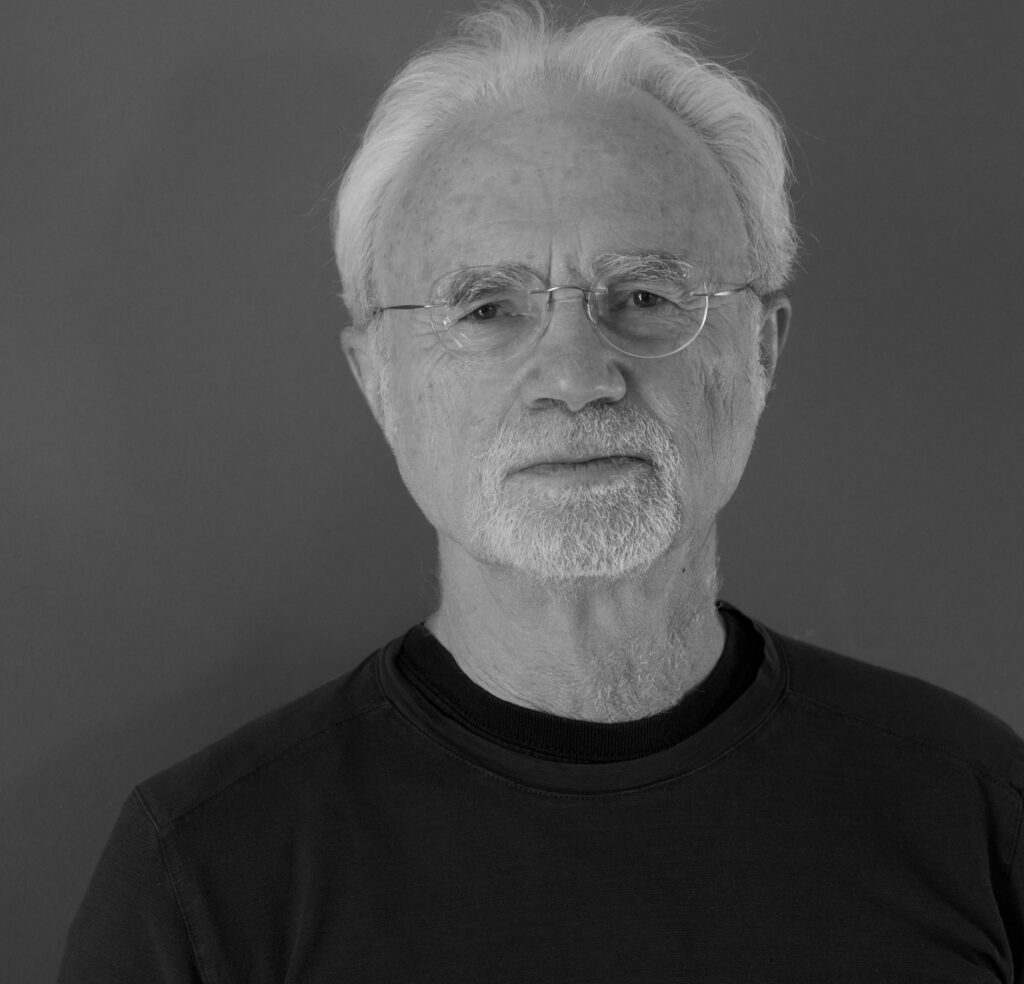Issue 235, Winter 2020

Photo courtesy of Suzan-Lori Parks.
There are few living writers—and fewer playwrights—as celebrated, cited, and studied as Suzan-Lori Parks. In three decades, Parks has become a staple of both the American theater and university syllabi, with a body of work that includes nineteen works for the stage— including a reboot of Porgy and Bess and a cycle of 365 short plays—widely read essays on style and form, three films, a novel, and a TV series inspired by the life of Aretha Franklin. She has received any number of honors and recognitions, including the MacArthur Fellowship and the Windham Campbell Prize. In 2002, she was the first African American woman to receive the Pulitzer Prize for Drama, for her play Topdog/Underdog (2001).
Parks was born in 1963 in Fort Knox, Kentucky, the second of three children. Her family, guided by her father’s military career, moved frequently, perhaps most consequentially to West Germany, where she spent four formative years and became fluent in the language. This bilingualism may be why she’s always lived at such an innovative and interesting remove from language itself, and perhaps also why she had a difficult time with spelling, which led a high school English teacher to dismiss her early dreams of becoming a writer. But Parks found the affirmation she needed at Mount Holyoke College, where she abandoned a major in chemistry for a life in letters at the encouragement of English scholar and critic Leah B. Glasser. Initially insecure and uncertain about the right form for her—fiction, poetry, songwriting—she was nudged toward the theater by none other than James Baldwin.
From essentially the outset of her career, Parks has been feted as a genius of the form. After a brief but interesting apprenticeship fashioning short works in “the bars and the basements” of late-eighties downtown New York, she broke onto the scene with Imperceptible Mutabilities in the Third Kingdom (1989). A wild, epic, genre-scrambling fantasia on themes of Blackness, Americanness, history, surveillance, language, and family, her first full-length play went on to win an Obie Award (she has now received four). This work, coupled with her next play, Death of the Last Black Man in the Whole Entire World (1990), heralded the arrival of a critical new voice in theater and cleared the ground for new themes and modes of expression on the stage. Parks’s innovative deployments of dramatic techniques find inspiration in the Modernism of Virginia Woolf and Gertrude Stein, the jazz of Ornette Coleman and John Coltrane, and the experiments of the off-off-Broadway pioneers Sam Shepard, María Irene Fornés, and Adrienne Kennedy; with these eclectic forebears she has staked new claims for artists of all colors and shapes to embrace multiple aesthetic legacies of radical work regardless of so-called gender, racial, and ethnic boundaries.
This interview, much like a Suzan-Lori Parks play, moved through many forms across the span of years: a jovial breakfast at a French bistro near her home, only a table over from her husband, Christian, and their young son, Durham; a more formal back-and-forth at a palatial studio in the Park Avenue Armory; and finally, in the throes of the pandemic, a couple of dishy gabs over “the Zooms.” Throughout it all, her generosity never waned.
A Broadway director once described Parks to me as “kind of our version of a rock star,” and in person she comes across as just that—ageless, wise, confident in her gifts, and strikingly free in her sense of self. Our conversations moved pleasantly between stretches of excited playfulness and wistful revelation, when it seemed that even she was cracking open some long-neglected chest of memories for the first time in a while. Parks claims that her creative process has always been more about listening than speaking, but more often than not this interviewer found himself struck by the ease with which she could toss off a casually elaborate metaphor in the moment or the speed at which she could turn a thought or idea into a better version of itself. Her mind is ever open but always, it seems, at work.
—Branden Jacobs-Jenkins
INTERVIEWER
What’s your relationship to the finished “product” when you’re working? Is it—the play or whatever—a thing you’re building in real time, or do you feel that the thing is already in there and your job is clearing away dirt?
SUZAN-LORI PARKS
It’s like what “Michelangelo” said, right? He’s working with the marble and taking away everything that’s not the sculpture.
INTERVIEWER
Everything that’s not David.
PARKS
Right. And let’s put Michelangelo in quotes, ’cause was he really the one who actually said that? But, anyway, the idea still holds. I feel that whatever I’m writing exists already. Maybe that’s because of a glitch in the space-time continuum and when I write I’m actually putting my living self behind the present moment in time. Like I’m following something through the woods. Eyes open. Ears open. Heart open. And I’m following a path that is sometimes behind me. Now I’m sounding like one of my characters. That’s what the Foundling Father as Abraham Lincoln in The America Play (1993) is talking about. He’s following in the footsteps of someone who is behind him. There is a strange relationship between writing and history and time, and I don’t think it is what we think it is. Or how we perceive it. There’s more to it.
INTERVIEWER
This talk of time and writing brings to mind your relationship with music, which people often talk about—the musicality of your language, the way your scripts sometimes read as scores, the occasional evocation by academics of something like a “jazz aesthetic.” Then there’s music in the literal sense. You’ve written songs for your novel, you write songs for some of your plays, you write songs for your band.
PARKS
Writing songs is my first thing, the first way I started being an artist. My first love. My songwriting and music have been living in the shadow of my large dramatic-writing tree, which is fine, I guess—they inform each other. Songwriting still feels like the kundalini and the Gordian knot. That energy is intense, and I think I’ve done more with literature because, growing up, music was not the safest thing for me to do. We’ll put it this way—the library was safer than the music hall.
INTERVIEWER
Where did you learn about music?
PARKS
From listening. My mom, she’s a Texan, she loves jazz, Charlie Parker and Dizzy Gillespie and then of course Billie Holiday and Sarah Vaughan and Ella Fitzgerald and Lena Horne, and Brubeck and Monk and Mingus. Dad, he’s passed, he loved opera. He would walk around the house lip-synching to Puccini and Wagner. My aunts and uncles love funk and soul, Aretha and Marvin, Curtis Mayfield and Parliament, James Brown.
When I think now about my writing, the story architecture is partly from my dad, opera, it’s like classical architecture—strong walls and huge, clear story lines, combined with the repetition and revision that I borrow from Mom’s beloved jazz aesthetic. And the people, the characters—classical- slash-historical origins that explode into brilliant and inventive jazz people. And the vibe is all soul.
INTERVIEWER
I love that. Do you have any sense of where your dad got his love of opera from? Because it’s historically a form associated with ideas of whiteness or Eurocentricity.
PARKS
It might be considered a “white” form, but there were a lot of trailblazers, people who made inroads—Marian Anderson, Paul Robeson, Jessye Norman, Leontyne Price. These icons singing the music of grand, huge, enormous things. My dad was very tall and opera is all about living large—it’s big, mythic, epic. I think that’s why he loved opera so much. And he loved structure. My dad was in the army, he joined back in the fifties. The army had just been integrated and it was seen as one of the few places that might give a Black man a fair shake. My dad grew up very poor, coming from Chicago, and with the ROTC he got through college, then he joined the army, and he stayed in as a career. When he retired he went back to school and got his Ph.D. Mom already had her master’s. She was already a professor.
INTERVIEWER
Your dad’s work with the army sent your family to Germany, right?
PARKS
We moved to Germany for my sixth, seventh, eighth, and ninth grades. My parents, thinking out of the box, sent us to Gymnasium—which is German for secondary school.
INTERVIEWER
That’s prime “let me be the most insecure I can be” time.
PARKS
I know, right? German people had not seen too many African Americans in the flesh. Roots, dubbed in German, was being broadcast on TV. There were the brown-skinned Gastarbeiter, the guest workers, primarily from Turkey. But it was quite intense to be the first Black person that my German friends had seen. Actually laid eyes, and hands, on. And there was the German language, which I had to learn, and the German kids learned British English, so my American English was frowned upon.
INTERVIEWER
Where in Germany were you?
PARKS
In Frankfurt. And in Gelnhausen, in Oberursel, and in Höchst—which was a very old, very small town. It was all eye-opening and beautiful—and stressful. But coming back to the States and finishing high school was also stressful because we were not—American anymore. The white kids were like, “You don’t act like a Black person.” And the Black kids were like, “You don’t act like a Black person.” And I was like, “What do you mean?” There’s a variety to the Black experience.
INTERVIEWER
So you’ve been fluent in German from a young age and now you’re married to a German. Do you guys speak German to each other?
PARKS
Yeah, we speak German in the house. We haven’t yet taught our son, because we like having a secret language.
INTERVIEWER
I bet he’s picking it up and you don’t even realize it.
PARKS
Oh, he certainly is! Durham’s got a great ear.
Maybe I write like I do because I spent those years in the cauldron of not fluently speaking the native language of my classmates. Those several years of being told that the tongue I spoke wasn’t right.




